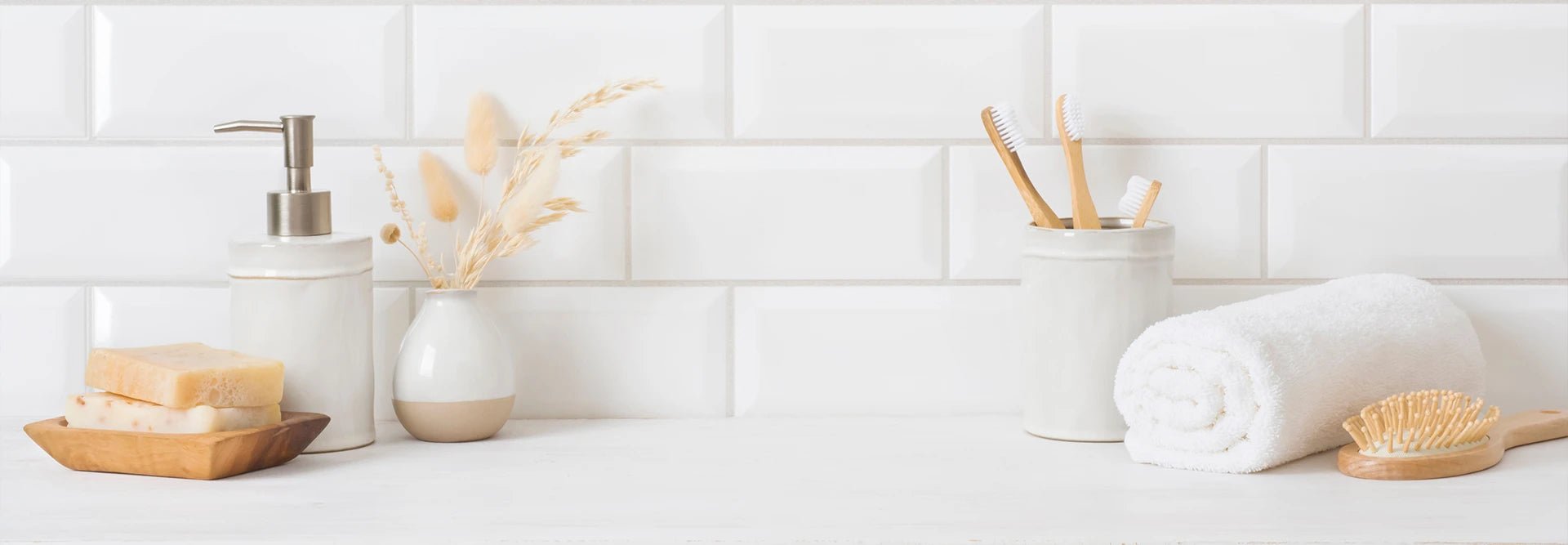
How to sleep better with a cold
When you’re suffering with a cold, getting the sleep you need can be difficult for sure. One minute you’re burning up, the next you’re shivering, and then of course there's the blocked nose, sore throat and muscle pain - no wonder it’s a struggle to get some decent shut-eye. Although sleep is what you need to feel better, sadly there’s no fast overnight cure for the common cold. But there are some simple yet effective things that you can do to alleviate the symptoms, helping you to sleep better when you’re under the weather. From creating the right sleep environment to the best sleeping position, we share our top tips for how to get to sleep with a cold.
Why it’s harder to sleep with a cold
The common cold is caused by a viral infection, with symptoms including a blocked nose and sore throat. You will most likely experience more mucus when you’ve got a cold and a blocked nose is actually caused by inflamed blood vessels within your nasal passageways.
When you lie down, your blood pressure changes and the position means that an increased amount of blood goes to the top of your body, which in turn worsens the inflammation in the blood vessels, making your nasal passages smaller. This is what makes you feel more congested when you go to bed and you’ll find it harder to breathe too, so it can be more of a challenge to get the sleep you need when you’ve got a cold.
What’s the best sleep position when you’ve got a blocked nose?
So, how should you sleep when you have a cold? To help you sleep better when you’ve got a cold, sleep on your side and use a couple of pillows to prop yourself up - just make sure your neck isn’t positioned at an awkward angle when you lie down in bed. Sleeping propped up on your side helps post nasal drip from building up and stops your nose from feeling as blocked, so you’ll find it easier to breathe.
10 tips for sleeping better with a blocked nose, the flu or a cold
Getting better sleep with a cold is possible - these 10 tips will help to soothe your symptoms and alleviate discomfort, making it easier for you to drift off.
-
Create the right sleep environment - when you’re feeling far from great, it’s tempting to turn up the heating and wrap yourself in blankets, but this will only lead to you waking up feeling hot and uncomfortable and even more congested during the night. So make sure your bedroom is cool and dark to help promote a better night’s sleep.
-
Use a humidifier - if you’re struggling to breathe, using a humidifier can help - this adds moisture to the air and helps to clear nasal passages.
-
Take nighttime cold medicine - this will make you feel more relaxed before going to bed and alleviate symptoms during the night. Just make sure to avoid medication which contains caffeine, as this will keep you awake and alert.
-
Have a warm shower before bed - not only is a warm shower a good way to relax before bedtime, the steam from the hot water can help to ease congestion, making it easier to breathe. You’ll need about 60-90 minutes for your core body temperature to drop again before you can fall asleep.
-
Use a nasal decongestant - this works by reducing inflamed tissue in your nose, which in turn, decreases the production of mucus, allowing you to breathe more easily when you’re trying to sleep.
-
Drink a hot beverage - a hot beverage or even soup is a good way to open up your nasal passages. Before going to bed, try soothing chamomile tea to aid with a sense of calm and relaxation. Avoid too much sugar and caffeine, some herbal teas contain a high amount of caffeine.
-
Avoid tossing and turning - if you can’t get to sleep after around 20 minutes, don’t lay there tossing and turning, instead, do something relaxing such as reading or listening to soothing music. Then, when you start to feel sleepy, go back to bed and hopefully you’ll enjoy a more restful sleep.
-
Sleep on your side - as previously mentioned, sleep on your side and raise your head with a couple of pillows to help ease that blocked up feeling.
-
Soothe a sore throat - with a cold comes a sore throat, so try gargling with salt water, which will help soothe, provide some relief and prevent an infection from getting worse.
-
Avoid alcohol - you may think an alcoholic drink will help you drift off, but it can disrupt your sleep and give you a dry mouth too, so not the best combination when you already have a sore throat. Plus, it’s not a good idea to mix alcohol and any cold medication you may have taken.
Can you sleep off a cold?
Even though quality sleep is essential when you’re feeling unwell and is what’s needed to make you feel better, unfortunately there is no fast overnight cure for the common cold. But sleep does aid with the recovery process and plays an important part in helping to cure a cold.
Sleep helps your body fight the infection that’s responsible for making you feel unwell when you have a cold. When you’re asleep, your body works to repair and recover, allowing time for rest and boosting your immune system, helping you on the road to recovery.
During sleep our immune system does not stop working. Our bodies produce certain proteins, Cytokines, which play a key role in fighting off infection. When our bodies are producing these proteins our sleep can be affected. We tend to have an increased amount of deep sleep. Learn more about sleep stages. Hannah Shore, Sleep research expert.
Changes in our sleep architecture (the amount of each type of sleep we get) can affect how we feel throughout the day. You may still sleep for the same length of time but with an increased amount of NREM sleep you will find a reduction in REM sleep. Both do a different job.
Should I be worried about sleeping with a blocked nose?
Even though it’s uncomfortable and causes disturbed sleep, sleeping with a blocked nose is nothing to be concerned about. Making some simple adjustments to your sleep routine can go a long way to helping ease symptoms during the night. However, if symptoms worsen after a week and you experience a fever and have difficulty breathing, make sure to see your doctor, as it could be a sign of a more serious infection.




